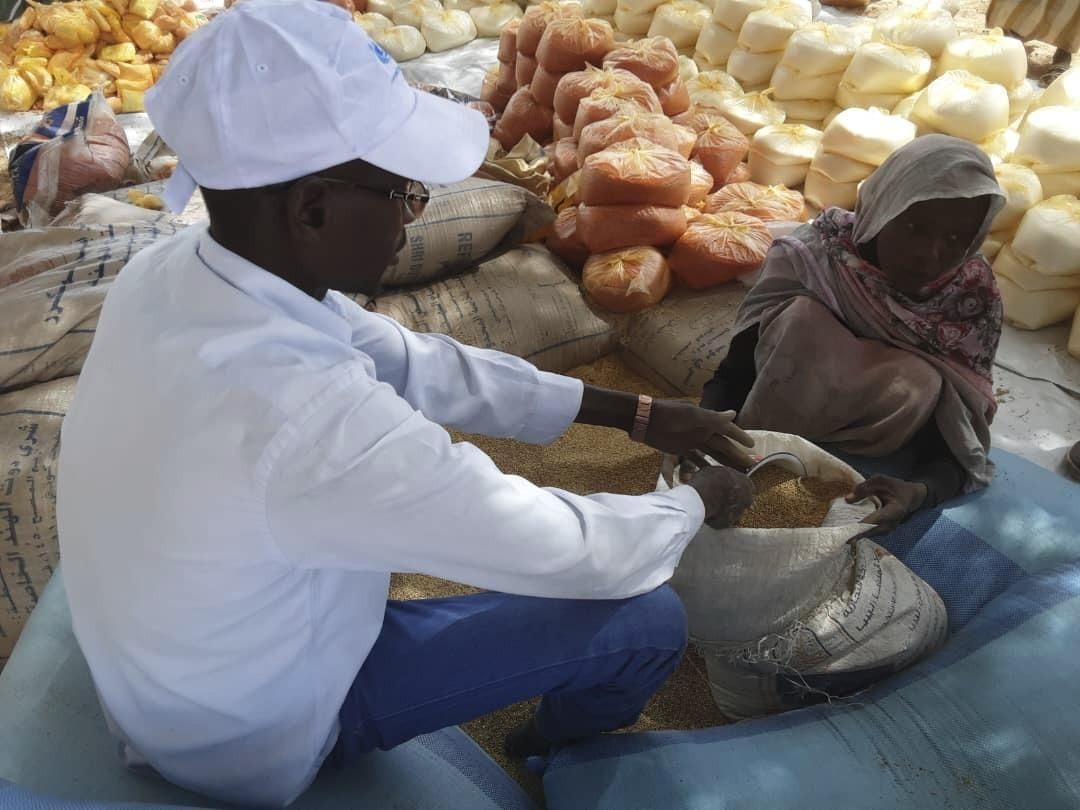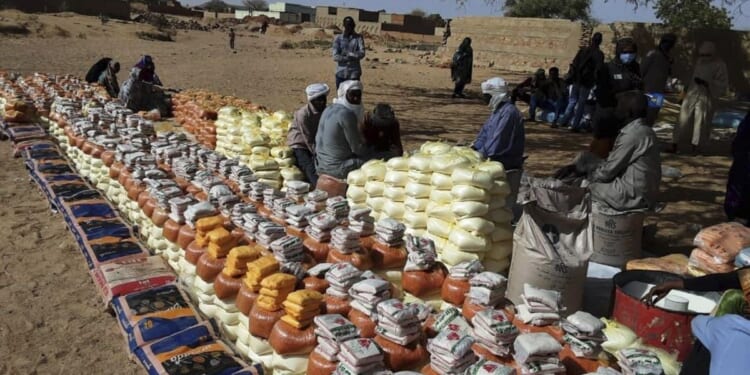
DAKAR, Senegal — The United Nations said Friday it has begun distributing food in Sudan’s restive western Darfur region for the first time in months, following two successful cross-border deliveries in March, but the population still faces widespread hunger unless more help arrives.
The yearlong conflict between military and paramilitary forces in Sudan is causing one of the world’s worst hunger crisis. About a third of the country’s population, or 18 million people, face acute hunger, the U.N. food agency says, with the most desperate trapped behind the front lines. They include 5 million who face starvation, the U.N.’s World Food Program has said.
In Darfur, where some of the worst fighting is underway, the situation is particularly severe.
Two aid convoys crossed the border from Chad into Sudan in late March, the WFP said, adding that it has been unable to schedule further shipments. The current deliveries are expected to reach about 250,000 people and last for a month.
“Hunger in Sudan will only increase as the lean season starts in just a few weeks. I fear that we will see unprecedented levels of starvation and malnutrition sweep across Sudan,” said the WFP’s top envoy to Sudan, Eddie Rowe.
The U.N. warned in March that some 222,000 children could die from malnutrition in the coming months unless aid needs are urgently met. The U.N. appeal for $2.7 billion for Sudan was less than 5% funded as of last month.
Sudan plunged into chaos in mid-April last year when clashes erupted in the capital, Khartoum, between the country’s military, led by Gen. Abdel Fattah Burhan, and the paramilitary group known as Rapid Support Forces, commanded by Gen. Mohammed Hamdan Dagalo.
The fighting quickly spread across the nation, especially urban areas but also the restive western Darfur region. Thousands of people have been killed, including between 10,000 and 15,000 people, when paramilitary forces and allied Arab militias rampaged through a Darfur town last year.
The fighting in Darfur, with brutal attacks from the Arab-dominated Rapid Support Forces on ethnic African civilians, is reviving fears of another genocide, back in the early 2000s, when as many as 300,000 people were killed and 2.7 million were driven from their homes, many by government-backed Arab militias.
Prosecutors at the International Criminal Court say there are grounds to believe both sides in the conflict are committing war crimes.
The Sudan war is also spilling into neighboring countries. More than half a million new refugees from Sudan have arrived in Chad, bringing the total population of refugees there to 1.1 million, the U.N. said in March. The arrivals have strained resources among the existing refugee population there.
A U.N. spokesperson told The Associated Press on Friday that aid for all refugees in Chad is set to run out soon.
“We’re just distributing the final aid we have and once that’s finished, as it stands right now, all distributions will stop,” said the spokesperson, speaking on condition of anonymity to discuss the matter.












